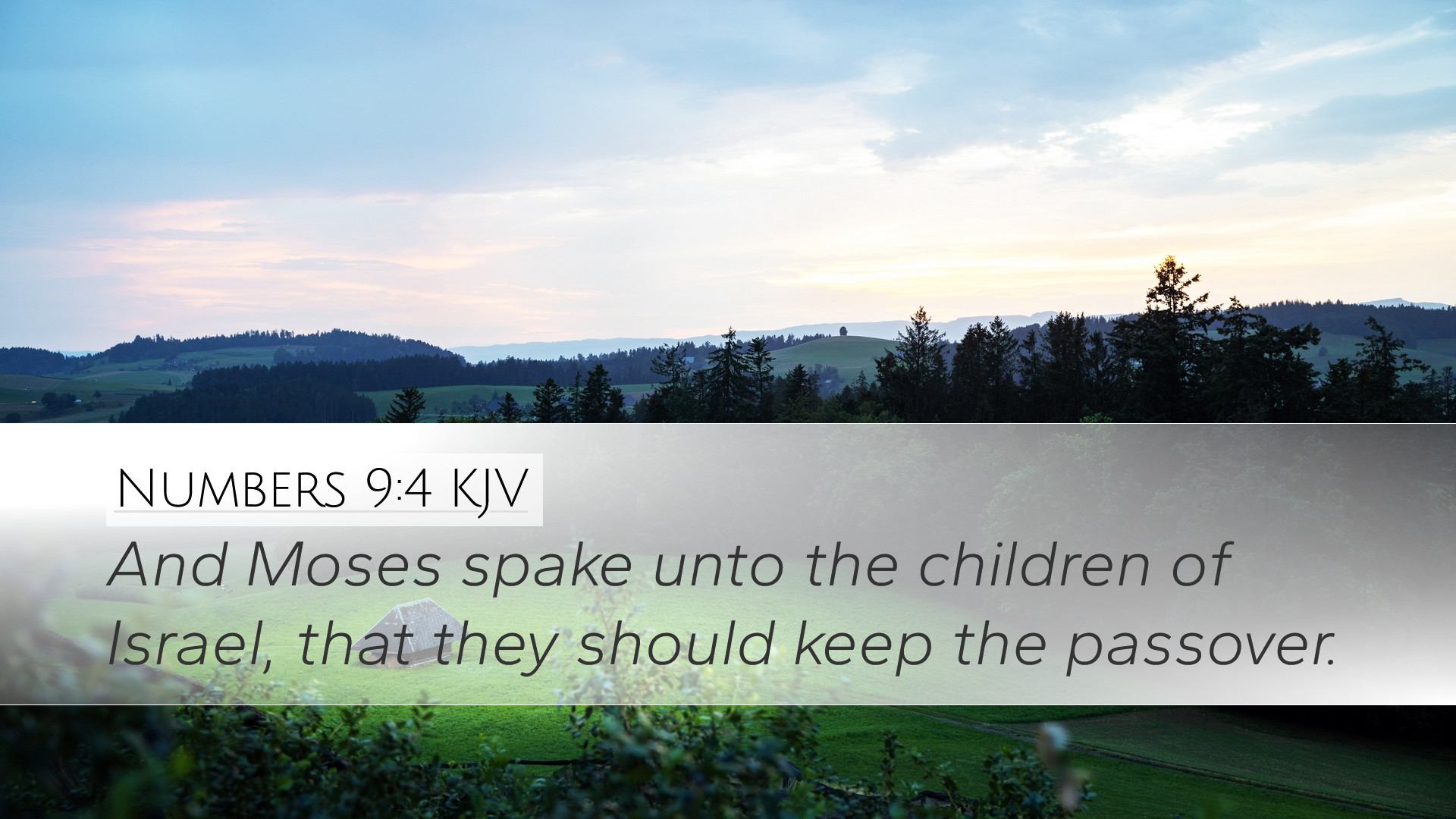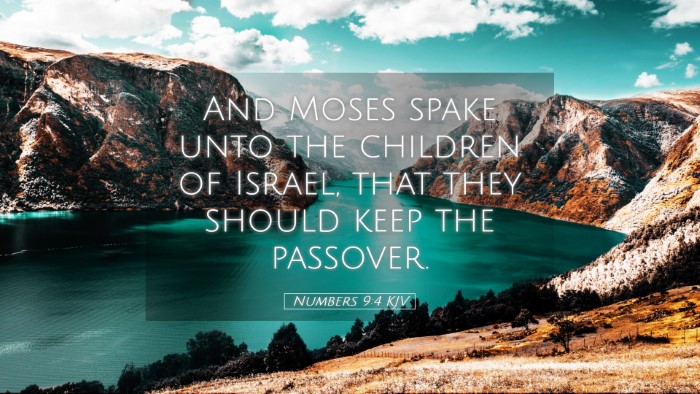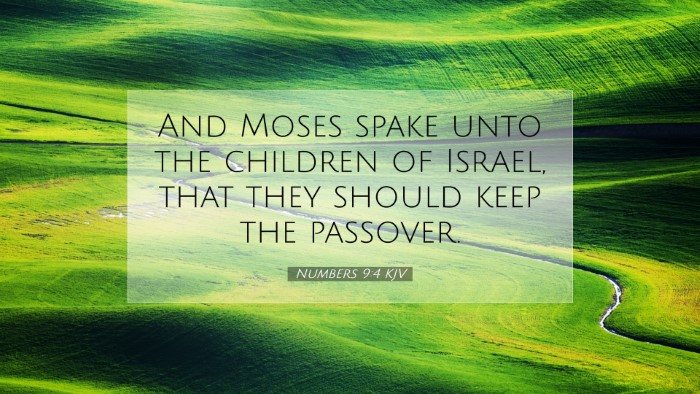Commentary on Numbers 9:4
Numbers 9:4 states: "And Moses spake unto the children of Israel, that they should keep the Passover." This verse is pivotal in understanding the significance of the Passover and its implications for the children of Israel. This commentary draws from various public domain sources, including Matthew Henry, Albert Barnes, and Adam Clarke.
Context and Background
The Book of Numbers continues the narrative of the Israelites as they journey through the wilderness. Following the events of the Exodus, the observance of the Passover emerges as a critical element of their covenantal relationship with God.
Moses’ command to keep the Passover serves as a reminder of their deliverance from Egyptian bondage. It was not only a festival of remembrance but also a declaration of faith in the Lord’s continual protection and provision.
The Role of Moses
- Moses as a Leader: Moses embodies the central role of a mediator between God and His people. His directive to the Israelites reflects obedience to divine instruction.
- Importance of Communication: Moses’ communication emphasizes the importance of leadership in spiritual matters, guiding the Israelites in observing God's commands.
The Meaning of Passover
The Passover holds profound theological significance. According to Matthew Henry, “The feast of the Passover must be kept by the Israelites as a perpetual memorial of their deliverance from Egypt.”
Albert Barnes notes that the ritual represents “the lamb slain for each household, signifying the protection of the blood, which prefigures the ultimate sacrifice of Christ.” This typological interpretation allows for a deeper understanding of how the Passover connects to New Testament themes.
Theological Implications
Understanding the Passover in its ancient context sheds light on its lasting theological implications:
- Deliverance and Sacrifice: The idea of deliverance through sacrifice underpins the narrative. The lamb's blood signifies redemption, much like the salvation found in Christ.
- Community and Obedience: The Passover is a communal observance, fostering unity among the Israelites as they collectively remember God's saving acts.
- Liturgical Observance: The instruction to keep the Passover exemplifies the importance of liturgical acts in connecting believers to God’s history with humanity.
Practical Applications for Today
For contemporary pastors and theologians, this passage emphasizes several lessons:
- Faithfulness in Remembrance: Like the Israelites, modern believers are called to remember their spiritual heritage and the acts of God in their lives.
- Leadership in Worship: Leaders are responsible for guiding their communities in worship and remembrance, much like Moses directed the Israelites.
- Understanding Christ’s Sacrifice: The typology of the Passover lamb invites believers to appreciate the depth of Christ's sacrifice and its implications for their faith.
Conclusion
Numbers 9:4 serves as a crucial reminder of the importance of observing God’s commands as a form of worship and remembrance. The directive given by Moses not only commemorates a pivotal event in Israel's history but also calls for an ongoing reflection of God's grace throughout the ages.
This commentary invites a deeper exploration of the connections between the Old and New Testaments, enhancing our understanding of redemption and community within the faith.


